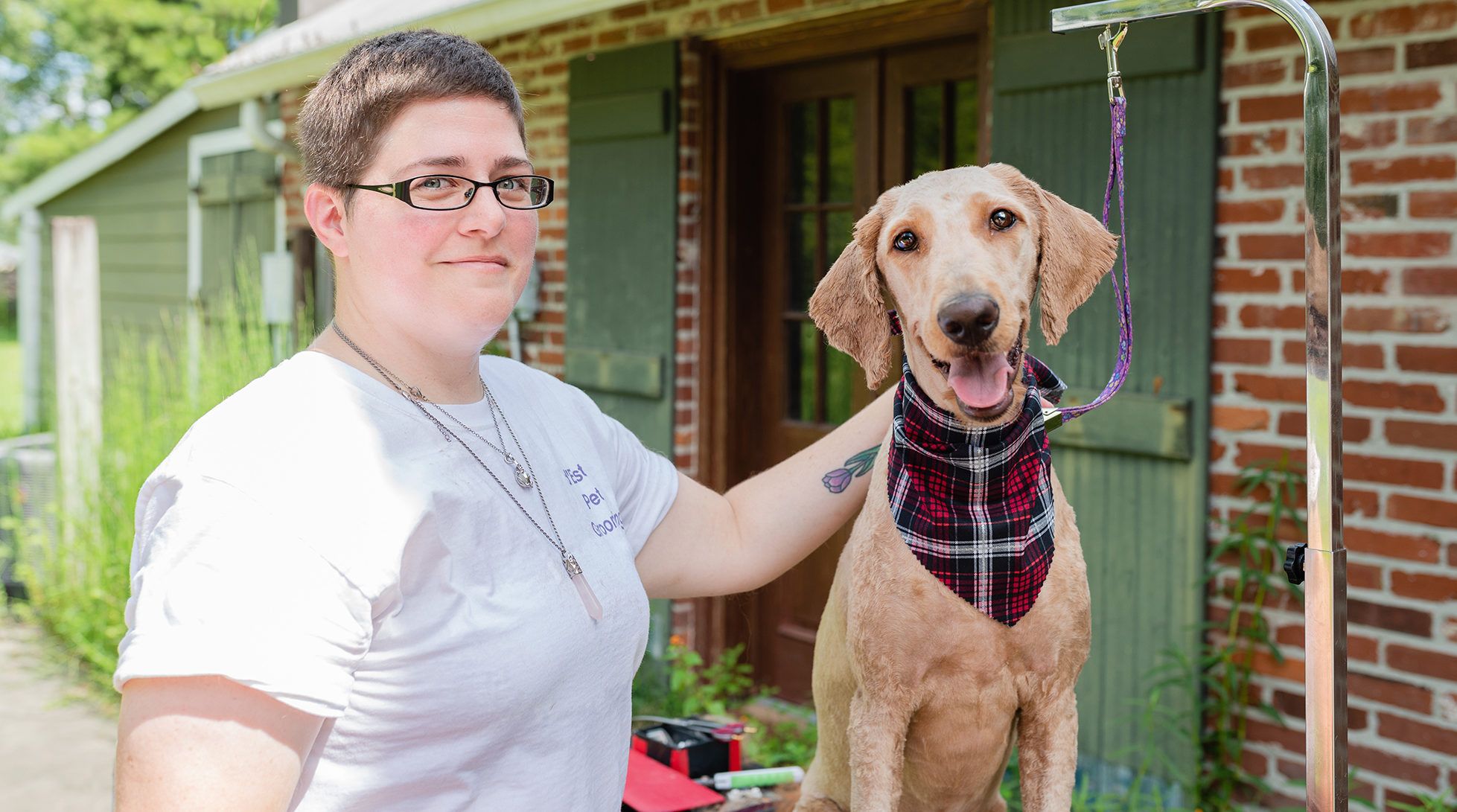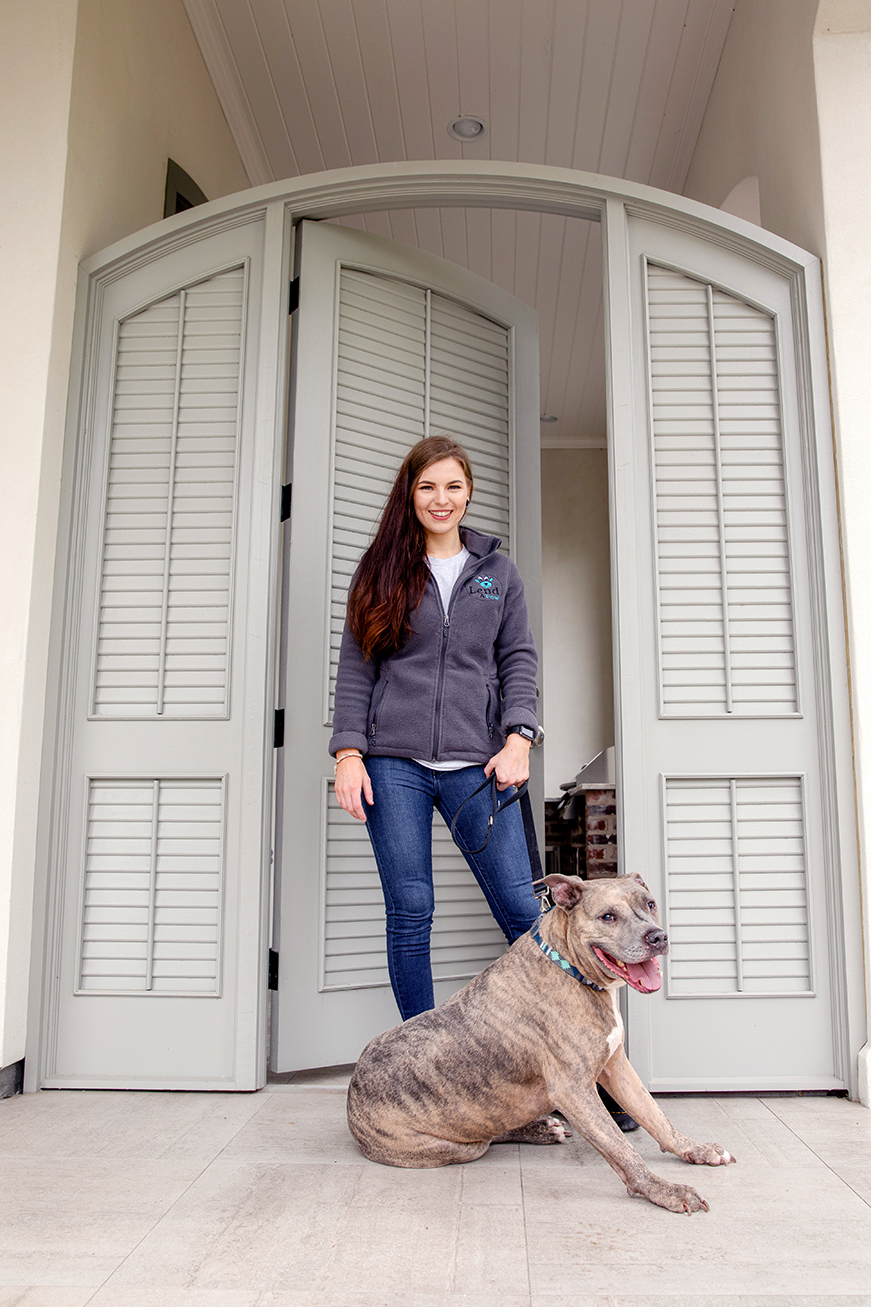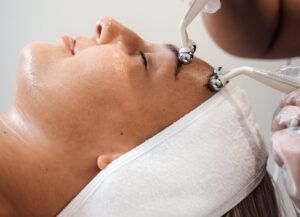
Supporting shelter survivors: Two local businesses cater to rescued canines and other species
No one would have predicted homeless animals would be fostered and adopted at the highest rates ever in the midst of a pandemic that has devastated lives and livelihoods of people worldwide.
As local shelters shuttered in March, they sent out desperate social media posts imploring the public to come and get pets out of the kennels.
They worked.
By June, the cuteness overload of puppy and kitten season, stay-at-home order, shortened school year and lack of summer camp conspired to convert temporary fosters into forever homes.
Most shelter animals adapt seamlessly to their new families and surroundings. But some rescues show signs of short-term or lasting problems from lack of training, isolation, abuse or some other past experience. Veterinarians, dog trainers and experts at LSU School of Veterinary Medicine often consult with adopters determined to find solutions.
In the meantime, the nonstop barking, growling, chewing, jumping and other erratic, anxiety-induced behaviors can put people, other animals and property in danger and make grooming and boarding seemingly impossible.
Thankfully, two local businesses now cater to rescued canines and other species who benefit from specialized, in-home grooming or pet sitting.
But why would anyone want to make a career out of working with animals known as excessive barkers, unprovoked biters, escape artists or worse?
April Robertson, owner of D’Este Pet Grooming, decided to work with anxious animals in response to her experiences grooming at a national retailer. “Dogs are a lot more sensitive than humans—particularly if they’ve experienced a trauma,” she says. “To them, going to big box store or private grooming shop is an overstimulating environment.”
New noises (talking, music, barking), scents (other dogs, grooming products, groomer’s lunch), lights (unnatural fluorescents), people and dogs all lurch out at once. Adding to that sensory overload is the prospect of being kenneled for hours, balancing on a table on three feet and having head movements restricted by a slip leash. So it’s no wonder dogs often exhibit signs of stress including accelerated heart rate, panting, tucked tail, ears pinned back, rapid eye movement, pacing and biting.
Still, whether performed by the owner or a professional, grooming—ear cleaning, nail trimming, mat removal—is important to maintaining a dog’s health. That’s why Robertson now offers the service in owners’ homes.
“When I come into the dog’s environment,” she says, “I feel like I have an ability to understand what’s going on and make the dog comfortable during grooming.”
A certified reiki practitioner, Robertson incorporates the Japanese technique for relaxation to decrease anxiety in her canine clients.
Shelter survivors are not the only lucky dogs. Robertson’s roster of special needs pets includes a white dog with congenital deafness and a purebred spaniel with a reattached retina, curved spine, weak legs and a heart murmur.
These days, more dog owners than ever seem to be pursuing in-home alternatives. “With COVID, everybody’s at home with their dogs, and they are making more of a connection,” Robertson says. “Owners now want their dogs at home with the family rather than in a kennel at a shop waiting for hours to be groomed.”

While Robertson focuses on grooming options, Lauren Swartley realized the need for boarding alternatives when she became the reluctant and terrified foster of a pit bull requiring emergency heartworm treatment.
After falling in love and keeping the 80-pound behemoth, she adopted a second pit bull rescued from a fighting ring.
“I couldn’t board [them] because they have anxiety issues, and I couldn’t bring them to certain states because of breed legislation,” Swartley recalls. “I started to wonder: How am I supposed to travel? What do other people do?”
She found owners of bully breeds or high-maintenance rescues typically hired a friend or neighborhood kid to come to their homes and hoped for the best. Or they simply didn’t travel at all.
“I think that there has always been a demand,” she says, “but there was never a solution to it.”
So Swartley became licensed, bonded, insured and pet CPR and first aid certified, and she launched Lend A Paw.
Since 2015, her team has cared for cats, guinea pigs, ball pythons, bearded dragons, chickens and bunnies. However, Lend A Paw’s most requested service is the three-times-a-day vacation drop-in, while the owner is out of town.
The second most popular package is dog walking. And here’s why: Even after training, a client’s young goldendoodle routinely redecorated by munching on the Sheetrock and furniture. Swartley began alternating 30-minute walks with one-hour field trips to different locations.
“That change in environment provides a different kind of mental stimulation,” she says. “By the time he gets home, he’s not looking for something to get into because he already had an adventure.”
Swartley sees her business as an extension of shelter adoption. She hopes the availability of an affordable, in-home boarding option will encourage more potential owners to adopt and keep a rescue.
“Like Pit Bulls & Parolees’ Tia Torres, I want to get more dogs adopted from the shelters,” Swartley says. “I hope one day [there’s not a need for anyone] to specialize in care for dogs who have behavioral problems from abuse and mistreatment.”
Find out more about D’Este Pet Grooming at destepetgrooming.square.site, and learn more about Lend a Paw at lendapawbr.com.











